The rise and fall of Mark Zuckerberg like Roman emperor Augustus
He’s not used to hearing no, is surrounded by sycophants and adores a totalitarian dictator. Inside the strange world of Facebook’s Mark Zuckerberg.
Zuckerberg likes emperors. He adores Emperor Augustus – the man who turned Julius Caesar’s insurrection against the Roman Senate into a monarchy.
Augustus Caesar was a master of ‘fake news’. He controlled what his subjects heard. He rewrote history to suit his purposes. His fans lapped it all up.
Notice any parallels?
“Basically, through a really harsh approach, he established two hundred years of world peace,” Facebook CEO Mark Zuckerberg gushed to The New Yorker in 2018.
“What are the trade-offs in that? On the one hand, world peace is a long-term goal that people talk about today (but) that didn’t come for free, and he had to do certain things.”
Zuckerberg’s devotion to Augustus casts his own behaviour in a new light.
Both had privileged backgrounds. Both won wealth and power at a young age. Both couldn’t tolerate criticism. Both planted the seeds of their downfall.
RELATED: Facebook ban sparks ‘fake news’ fears
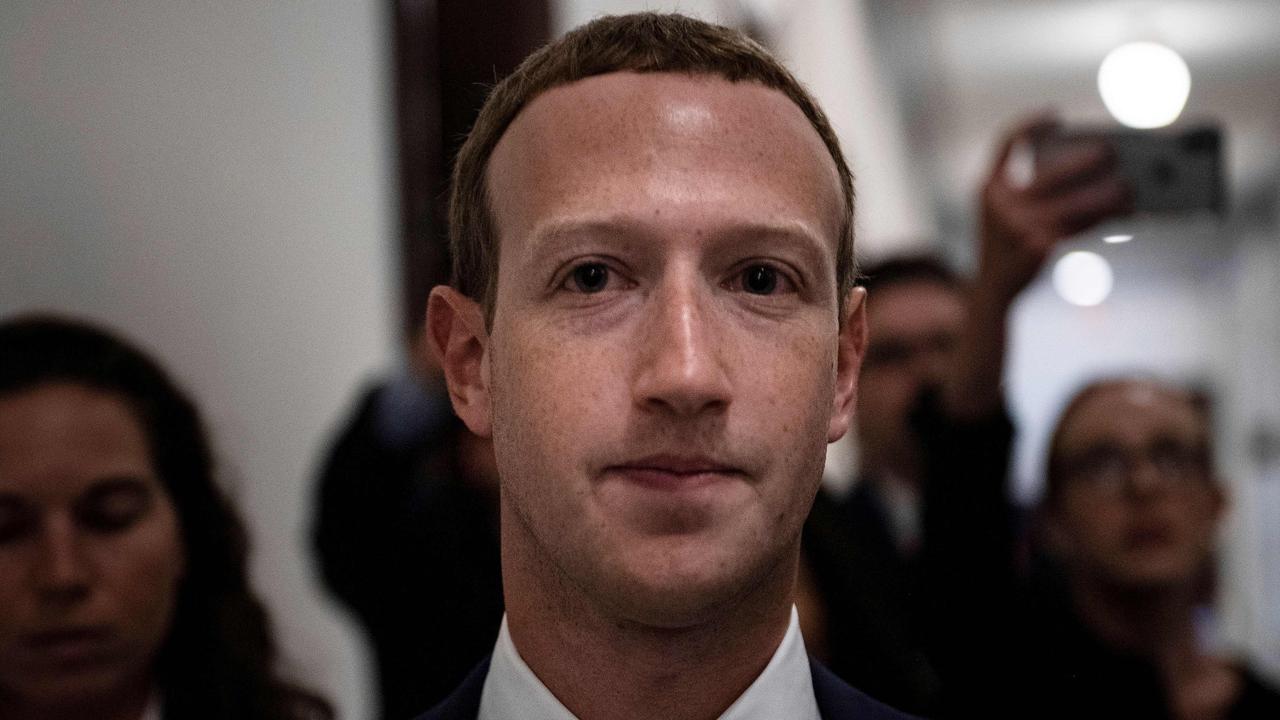
There is growing unease about Zuckerberg’s power and influence over elected governments the world over.
His company, Facebook, has more than two billion users. It is widely accused of disregarding their privacy in its efforts to find – and generate – new markets. It is accused of spreading hate – even broadcasting in real-time terror attacks such as the Christchurch terrorist’s rampage through two New Zealand mosques.
Facebook has been involved in more than 80 governmental hearings around the world since 2016. Accusations range from misleading government regulators to promoting the genocide of the Rohingya ethnic minority in Myanmar.
From enabling interference in elections to ignoring privacy laws.
Behind it all stands Mark Zuckerberg.
And he’s been giving us mixed messages.
‘CERTAIN THINGS’
Such was Zuckerberg’s passion for the Roman tyrant Augustus that his new wife joked that there were “three people” on their 2012 honeymoon to Italy.
RELATED: Why Aussies won’t accept Facebook ban
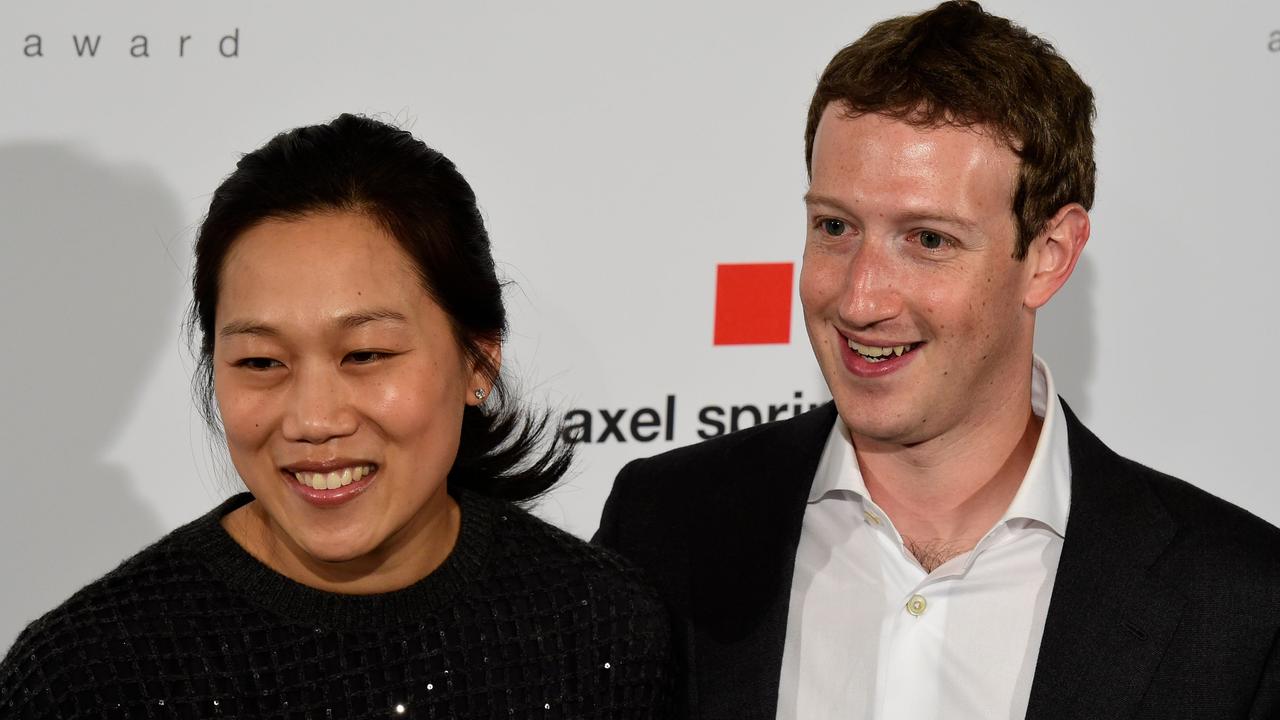
But University of Melbourne associate professor of ancient history Frederik Vervaet notes that Emperor Augustus Caesar has picked up some baggage.
His persona resonates among certain unsavoury sectors of modern society.
And that’s all because of ‘certain things’ the totalitarian dictator did.
“Augustus’s own autobiography is a towering example of ‘alternative truth’,” Dr Vervaet writes. “By his ruthless and cynical actions, Augustus arguably wrote the script for some of the most notorious tyrants of the 20th century – Stalin and Hitler.”
Augustus is the hero of the European New Order movement that wants to establish authoritarian rule to tackle immigration, fertility rates, ‘family values’ and national security.
“This modern-day appeal of Augustus is perhaps being echoed in the increasing attractiveness of strongman politics in countries like the US, Russia, Turkey, Italy, Hungary, the Philippines, and Brazil,” writes Dr Vervaet.
Facebook’s role in amplifying such echoes is again being called into question following the Capitol Hill insurrection of January 6. So is Zuckerberg’s behaviour, and motivations.
RELATED: What your Facebook feed will look like
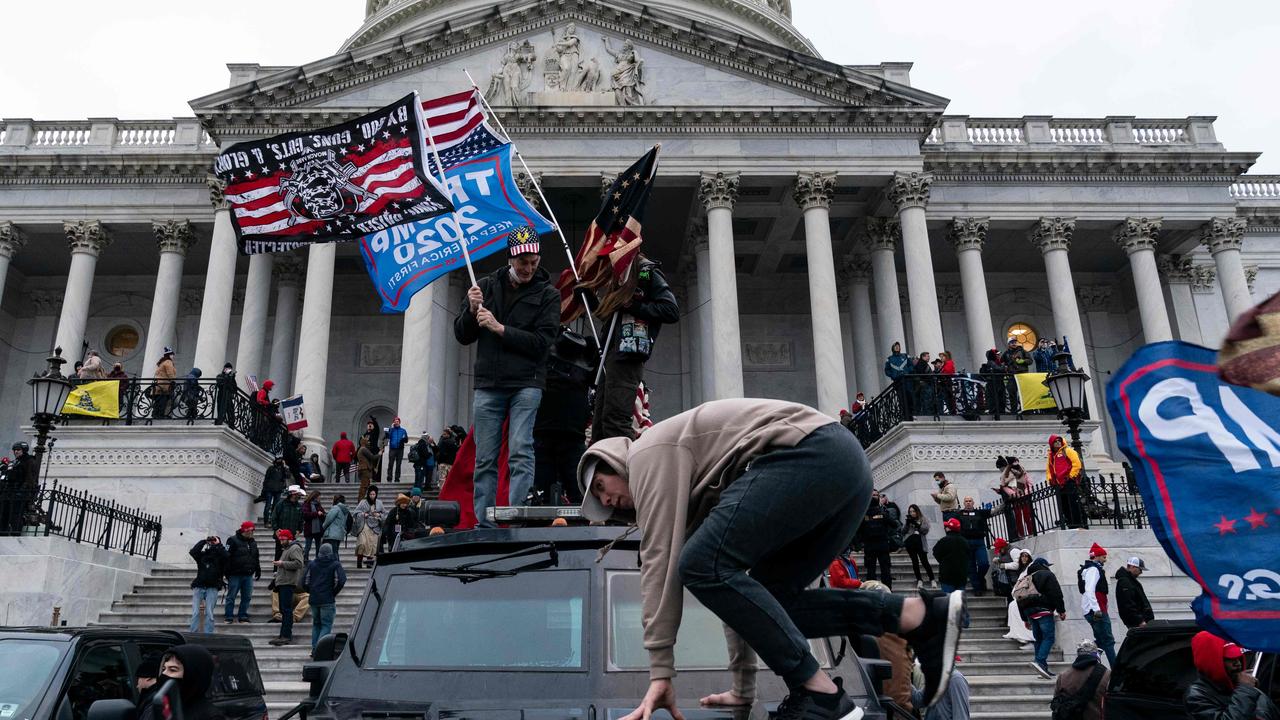
Autocrats get to sound good because they control what’s said – and written – about them.
They surround themselves with sycophants who hang off their every word. Which is why the likes of Zuckerberg aren’t used to the word ‘no’.
He’s never had a boss. He’s created his own rules. He’s only ever had to listen to his own advice.
All of his executives. All of his staff. All owe their success – and enormous salaries – to the man who is their CEO.
So what could a whiz-kid who has everything possibly want?
Donald Trump may have set an example.
It’s an example already established by Augustus Caesar.
“Given the actual history of Rome’s first emperor and his subsequent imitators, anyone looking to Augustus and his methods as a source of inspiration and a role model for crisis management should be very careful what they wish for,” Dr Vervaet warns.
AUGUSTUS ZUCKERBERG
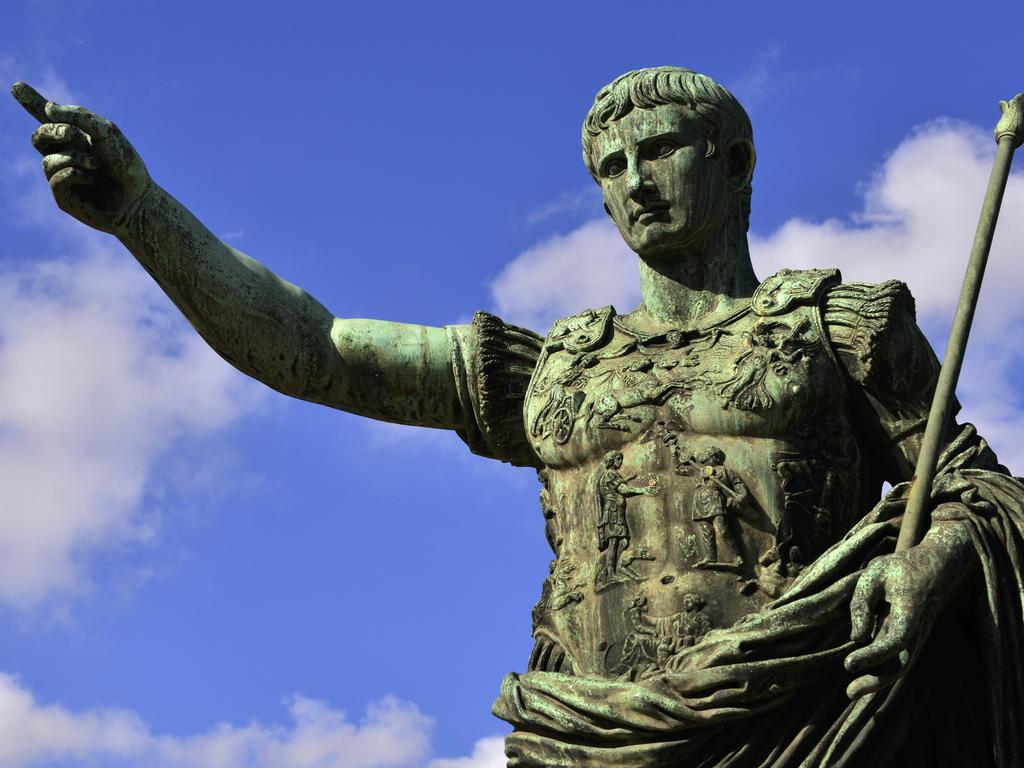
Mark Zuckerberg has one job. He’s had it since he was a ‘whiz-kid’ teenager lurking in a Harvard University dorm. It made him immensely rich. It made him immensely powerful.
So powerful, only a handful of governments can stand up to him.
“Young entrepreneurs without any democratic mandate (have) landed a windfall of infinite information and unaccountable power,” warns Harvard Business School Professor Emeritus Shoshana Zuboff, author of the seminal The Age of Surveillance Capitalism.
“Google’s founders, Larry Page and Sergey Brin, exercised absolute control over the production, organisation and presentation of the world’s information.
“Facebook’s Mark Zuckerberg has had absolute control over what would become a primary means of global communication and news consumption, along with all the information concealed in its networks.”
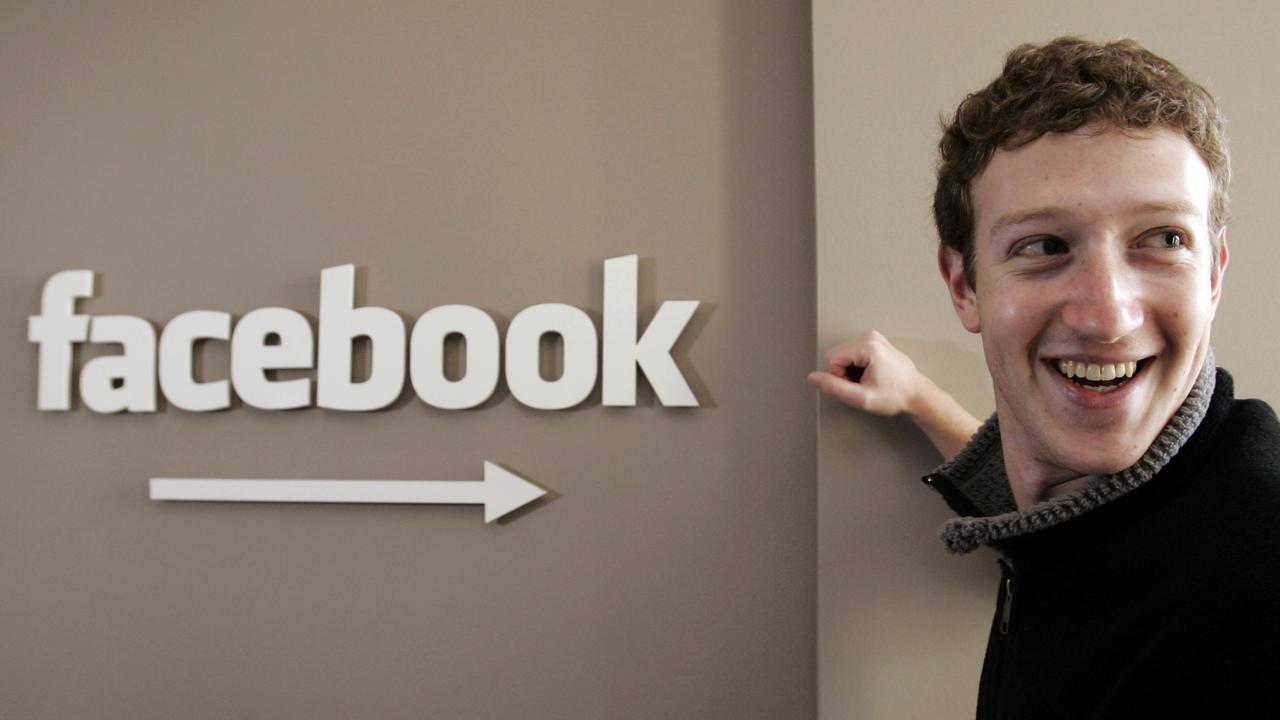
In 2017, Zuckerberg decided to tour all 50 states of America to “talk to more people about how they’re living, working and thinking about the future”.
It was widely seen as the opening move of an eventual presidential bid. Zuckerberg denied this.
But what else can the young CEO of a world-beating tech firm aspire to?
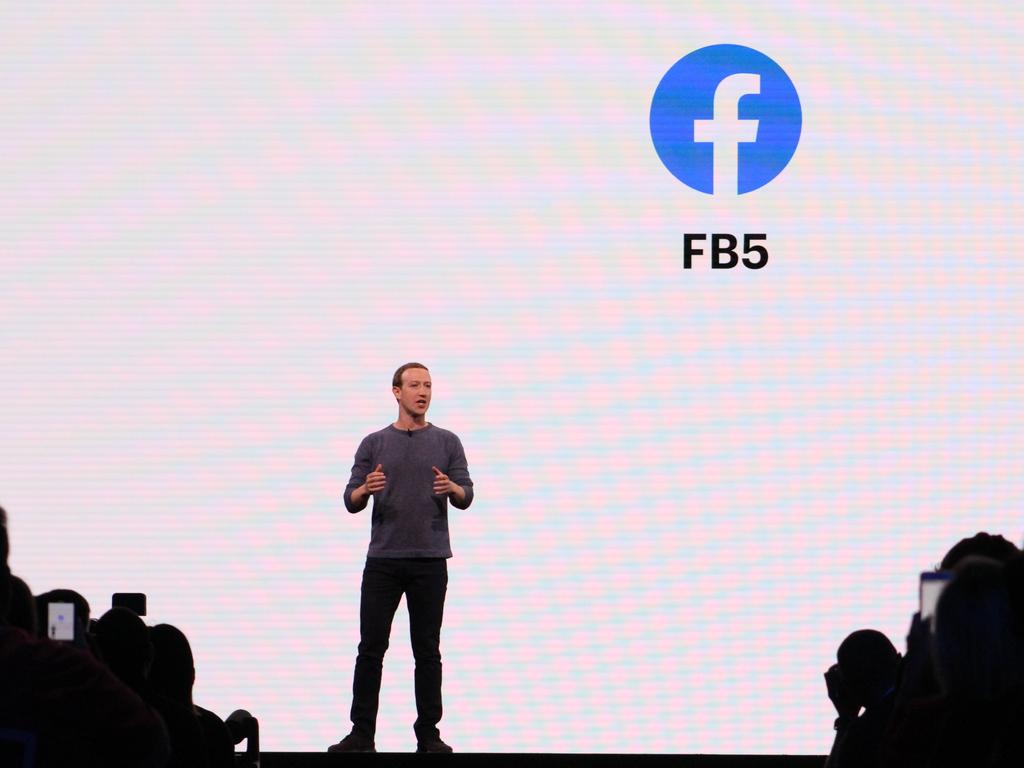
At that time, Facebook was fending off accusations about Russian electoral manipulation and misinformation campaigns. Such messages had been micro-targeted, using Facebook’s immense wealth of personal data to identify the most susceptible voters and flood them with emotive political posts.
The explosive claims sparked uproar.
That uproar was further inflamed by the January 6 Capitol Hill insurrection attempt.
“I’ve never been a fan of Facebook, as you probably know,” Joe Biden told the New York Times last year. “I’ve never been a big Zuckerberg fan. I think he’s a real problem.”
Zuckerberg’s power and ambitions are eliciting similar comments around the world.
And all eyes are on whether his actions match his words.
“I believe we need a more active role for governments and regulators. By updating the rules for the internet, we can preserve what’s best about it – the freedom for people to express themselves and for entrepreneurs to build new things – while also protecting society from broader harms,” he wrote in 2019.
But Zuckerberg’s comfort in his own power appears to have become his undoing.
THE IDES OF MARCH
Zuckerberg plays a starring role in the scandals surrounding his social media networks.
“It is better to buy than compete,” an email purportedly posted by the CEO in 2008 reads. “Instagram was our threat. … One thing about start-ups though is you can often acquire them,” he later reaffirmed.
These, and many similar, emails are now at the heart of US Congress anti-trust and abuse of monopoly investigations.
“I have never seen a plaintiff’s case rely so heavily on a CEO’s own words,” says Vanderbilt University professor of law Rebecca Haw Hallensworth.
“Unfortunately for Facebook, Zuckerberg’s emails are explicit and detailed in describing his desire to avoid competing with Instagram and WhatsApp.
“The court will find that relevant – and possibly damning. The paper trail … Zuckerberg created of Facebook’s transgressions is now why a federal anti-trust lawsuit poses an existential threat to his company.”

The illusion of Zuckerberg’s power seems to have been tarnished.
Instead of using targeted posts to undermine Australia’s new media laws, Zuckerberg chose to hire experienced lobbyists who had personal relationships with Prime Minister Scott Morrison.
He threatened to eliminate Australian news from his feeds.
But the Federal Government called Zuckerberg’s bluff.
So, unused to being told “no”, he’s pulled the plug. And that includes medical and emergency services feeds.
The backlash has been overbearing. Its reverberations will no doubt reach Capitol Hill’s anti-trust committee.
Zuckerberg may soon be called to account.
“We must consider: when should we expect Facebook to follow the law? And when could we expect Facebook to defy what it considers unjust laws?” Queensland University of Technology researcher Andrew Quodling asked after Zuckerberg called for government regulation in 2019.
“It’s equally important that we hold Facebook’s feet to the fires of responsibility, reform, and regulation – to ensure that these latest commitments are more than just hot air.”
Jamie Seidel is a freelance writer | @JamieSeidel




